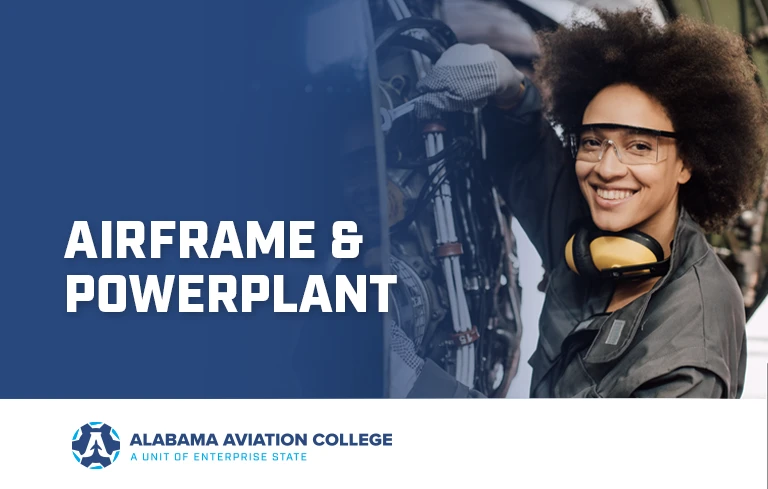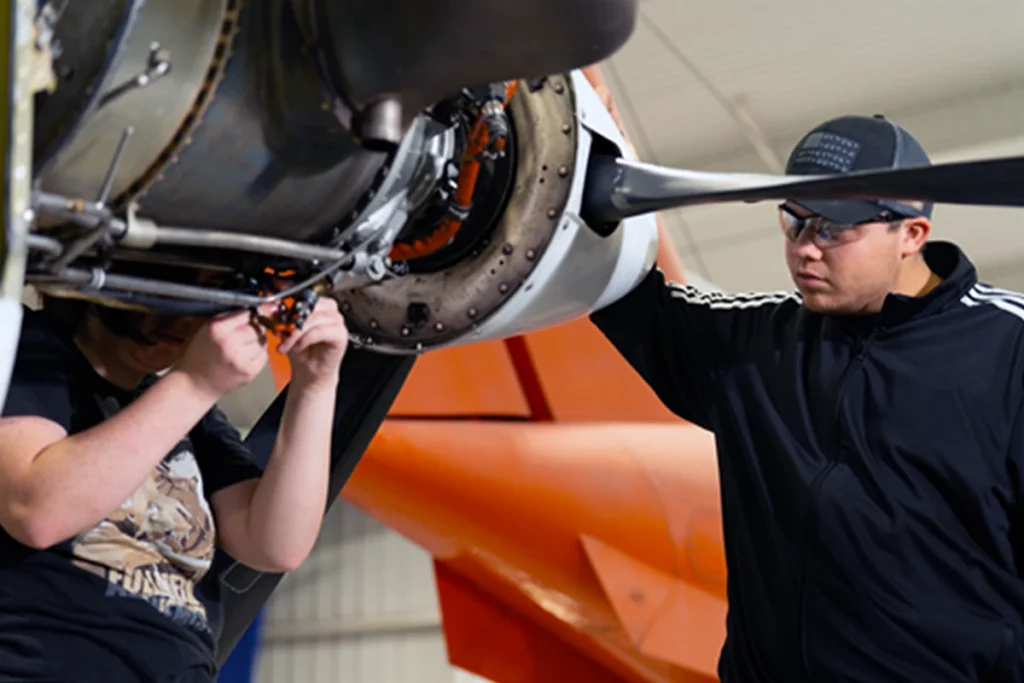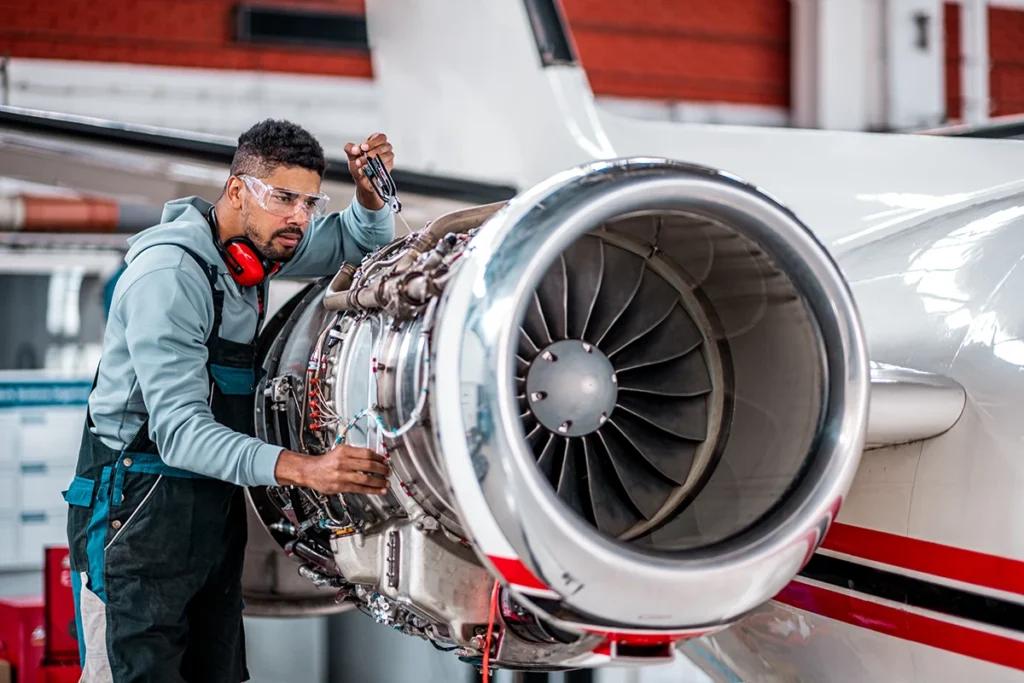


Airframe & Powerplant
Aviation maintenance technicians are important in keeping aircraft safe and ready to fly.
Students gain hands-on experience with real equipment and aircraft. This program prepares you for Federal Aviation Administration certification, allowing a mechanic to inspect and maintain U.S.-registered civil aircraft. You’ll learn to inspect, troubleshoot, repair, and maintain aircraft structures and engines through hands-on training. You’ll also learn the details of maintenance documentation, recordkeeping, certification, and how to read technical drawings and diagrams. This career field requires a high standard of integrity and ethics.
Are you ready?
For more information, please contact:
What is an Airframe Technician?
Airframe technicians inspect aircraft frames, mechanical components, and electrical systems to locate wear, defects, and other problems. They read the documentation and other repair manuals to determine standards and procedures and test aircraft functions using diagnostic instruments to ensure they are met. They then repair or replace components using hand or power tools and may order additional supplies. Meticulous records of all activities are needed, which can then be presented to managers or inspectors when requested.
What is a Powerplant Mechanic?
Powerplant mechanics are responsible for maintaining and repairing turbine engines and propellers. Duties may include disassembling engines and inspecting parts, using hoists or forklifts to remove or install aircraft engines, and testing the operation of engines and other systems. Additionally, powerplant mechanics may use diagnostic equipment such as ignition analyzers, compression checkers, or ammeters.
What is an A&P Mechanic?
Also known as an aircraft maintenance technician, an A&P mechanic refers to an individual who holds an Airframe and/or Powerplant (A&P) certificate which is issued by the Federal Aviation Administration (FAA). An A&P license qualifies you as a general mechanic to work on aircraft. A&P mechanics repair and maintain airplane engines, landing gear and just about everything except the flight instruments. That kind of work requires additional certification as an avionics technician, another program of study offered by the Alabama Aviation College.

WHAT TYPES OF JOBS CAN I GET?
A&P licensing is the baseline requirement for work as a general mechanic who services all types of aircraft, including jets and helicopters. Some mechanics specialize in a particular type of aircraft and a particular section, such as the electrical or hydraulic systems, the engine, brakes and landing gear.
Even if you decide not to go into aviation, you can use your training in many other sectors. You can apply your mechanical skills in fields such as industrial technology, automotive, light and power, diesel, and heavy equipment. This is because A&P training equips you with understanding of hydraulics, welding, reciprocating engines, sheet metal fabrication, and more.

What’s the career growth potential?
The median annual wage for aircraft mechanics and service technicians was $65,380 in May 2021. The median wage is when half the workers in an occupation earn more than that amount, and half earn less. The lowest 10 percent earned less than $38,270, and the highest 10 percent earned more than $98,590.¹ Boeing’s annual Pilot and Technician Outlook, which forecasts long-term trends in the aviation industry, shows substantial continued demand for technicians over the next 20 years. Boeing predicts a need for 610,000 aircraft technicians through 2041.²
1 Source: Bureau of Labor Statistics, U.S. Department of Labor, Occupational Outlook Handbook, Aircraft and Avionics Equipment Mechanics and Technicians.
2 Source: Boeing is the world’s largest aerospace company and leading manufacturer of commercial jetliners, defense, space and security systems, and service provider of aftermarket support.
STRENGTHS
DETAIL ORIENTED
An eye for detail is essential to this job. While you will have diagnostic tools to assist you, it will still be your job as a mechanic to make the call on whether the equipment is up to the required standard.
TECHNICAL
If you’re a technical person, it will go a long way in this role. You don’t need to be advanced in technical knowledge. You’ll learn as you train.
Dexterity
As an aircraft mechanic, you’ll have to work with your hands, meaning you will need to be dexterous. This may not be your path if you don’t like occasionally getting your hands dirty.
TROUBLESHOOTING (& PATIENCE)
As a mechanic, you must be able to work out what is causing problems with specific equipment. This requires patience, common sense, and, sometimes, thinking outside of the box.
REQUEST MORE INFORMATION
Complete the form below and we’ll get back to you as soon as possible.




